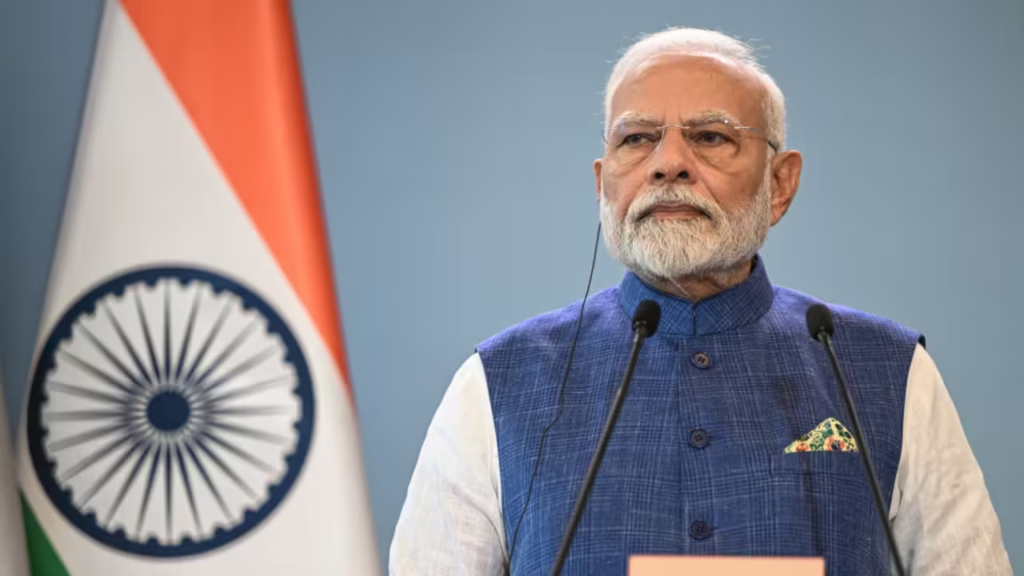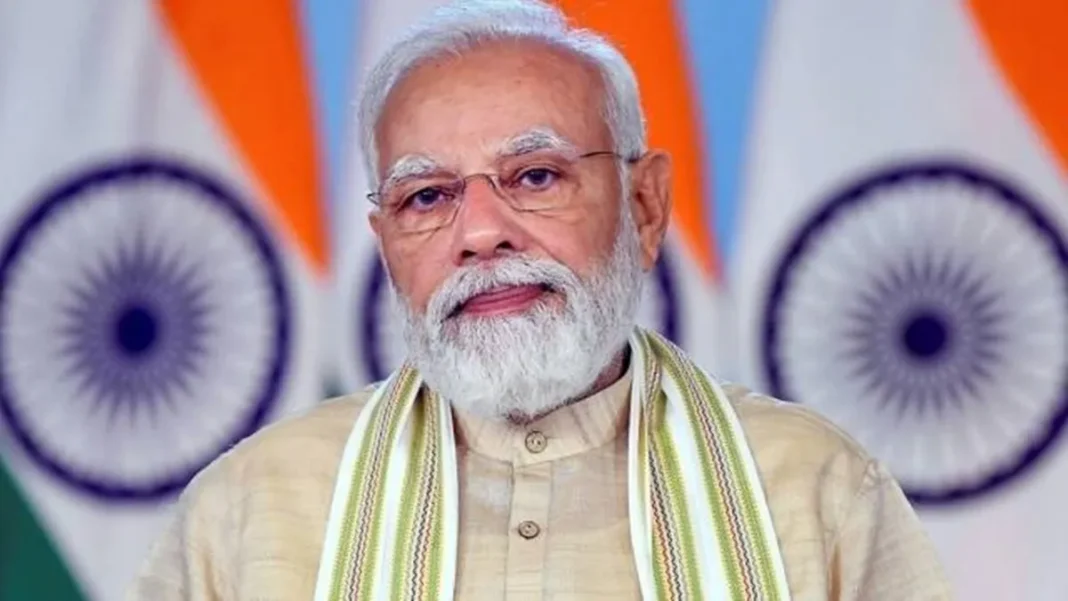
On June 25, 2025, marking the 50th anniversary of the Emergency, Prime Minister Narendra Modi delivered a fiery speech attacking the Congress party for what he called the “darkest and most painful chapter in Indian democratic history.” Addressing a large public gathering, PM Modi said that democracy was not just weakened but placed under arrest during the Emergency declared in 1975 by then Prime Minister Indira Gandhi. His powerful statement — “Democracy was arrested, the Constitution was silenced, and the voice of India was crushed” — set the tone for a historical reflection on one of the most controversial periods in post-independence India.
Emergency of 1975: A Period of Suppression and Fear
The Emergency was imposed on the night of June 25, 1975, and lasted until March 21, 1977. It was declared under Article 352 of the Constitution on grounds of “internal disturbance.” What followed was an unprecedented suspension of civil liberties, press censorship, and mass arrests of political opponents, journalists, and activists. Modi recalled this time as an era when freedom of expression was banned, and dissent was criminalized. According to him, this was not just a political move but an assault on the soul of the Constitution.
Modi’s Strong Words Against Congress
In his speech, PM Modi targeted the Congress party, holding it solely responsible for the imposition of Emergency. He said, “The Congress party that today speaks of protecting the Constitution had once torn it apart to protect one person’s political power. The Emergency was not for national security — it was for personal insecurity.” He emphasized that the move was to safeguard Indira Gandhi’s power after the Allahabad High Court had declared her election invalid, and not for any real threat to the nation. By highlighting the authoritarian mindset of Congress, he warned citizens that such tendencies still exist in political circles today.
Honoring the Brave Voices of Resistance
PM Modi also paid homage to the journalists, students, and political leaders who stood up against the Emergency. He mentioned that thousands were jailed without trial, many were tortured, and others were forced into hiding. He said that their sacrifice should not be forgotten and should inspire the new generation to stand up against tyranny, no matter where it comes from. Modi especially remembered leaders like Jayaprakash Narayan, Atal Bihari Vajpayee, George Fernandes, and L.K. Advani, who became symbols of resistance during those difficult times.
Democracy Then vs Democracy Now
Drawing a sharp contrast between the Emergency era and today’s India, PM Modi said that while the BJP government welcomes criticism and feedback, the Congress regime had criminalized both. He stated, “In today’s India, journalists are free to question the government, courts are free to stop any unconstitutional move, and people are free to protest — that is the power of democracy we protect.” He stressed that true democracy thrives in disagreement and debate, not in forced silence.
Youth Must Learn from the Past
A key focus of PM Modi’s speech was addressing India’s youth, many of whom were born decades after the Emergency. He said, “You must learn what happens when the Constitution is treated as a personal document and not a sacred guide.” He urged schools, colleges, and universities to introduce material on the Emergency to ensure students understand its seriousness. Modi emphasized that democracy is not a gift, but a legacy protected by the sacrifices of many.
BJP and RSS Hold Memorial Events Across the Country
To mark the 50th anniversary, the Bharatiya Janata Party (BJP) and Rashtriya Swayamsevak Sangh (RSS) held multiple memorial events and exhibitions across the country. BJP President J.P. Nadda inaugurated a special photo exhibition that included rare pictures of leaders in jail, banned newspaper editions, and protest posters from the Emergency era. Home Minister Amit Shah also issued a statement calling the Emergency “the darkest chapter in Indian political history” and said that Congress has never sincerely apologized for it.
Congress Reacts: “Modi is Distracting the Nation”
The Congress party responded strongly to Modi’s remarks. Party spokesperson Jairam Ramesh said, “Modi talks about the Emergency only to divert attention from the failures of his own government — rising unemployment, inflation, and institutional breakdown.” He added that while the Congress has accepted past mistakes, the BJP uses the past as a political tool to silence today’s criticism. Another Congress leader, Pawan Khera, accused Modi of “rewriting history” and said that many who opposed the Emergency were later welcomed back by the people, showing that democracy eventually triumphed.
Judiciary and Media: Then and Now
PM Modi also addressed the role of the judiciary and the press during the Emergency. He said that the Supreme Court had failed in its duty to protect citizens when it ruled that even the right to life could be suspended during the Emergency. He urged the judiciary to remember this dark episode and remain vigilant in defending the Constitution. Modi praised modern journalists and independent courts for speaking truth to power, and acknowledged the critical role they play in maintaining checks and balances.
A Warning for the Future
The core message of PM Modi’s speech was not just to look back, but to stay alert for the future. He said, “The biggest threat to democracy is when people forget what happened in the past. That is when history repeats itself.” He encouraged every citizen to act as a watchdog of democracy, by staying informed, participating in governance, and questioning those in power. Modi said the Emergency teaches us that no leader, party, or ideology is above the Constitution, and that this principle must be kept alive at all costs.
PM Modi urged all Indians to take a pledge on the 50th anniversary of the Emergency to never let such a situation arise again. He said, “June 25 should not just be remembered as a date in history, but as a day of caution, commitment, and courage. Let us make sure our democracy remains strong, vibrant, and accountable to the people.”He reminded everyone that the Constitution is not just a book — it is the heartbeat of India’s democracy, and each generation must protect and preserve it for the future.































